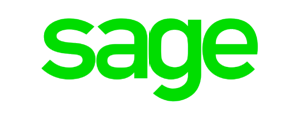If your business accepts recurring payments from customers and you’re not yet using Direct Debit, then this article is for you.
Whether you’re an after-school club or private healthcare clinic, a web hosting service provider or gym owner, switching the collection of customers’ regular payments to Direct Debit can help to grow your business.
Here we explain the benefits of Direct Debit for any business with a recurring payment model, no matter if your customers pay weekly, monthly, quarterly or even annually.
Direct Debit Explained
 Before we detail how Direct Debit can boost your business, it’s important to recap on exactly what it is.
Before we detail how Direct Debit can boost your business, it’s important to recap on exactly what it is.
It’s likely that you’ve heard of it. Last year an eye-watering 4.2 billion Direct Debits were processed in the UK. Of that number 1.6 billion were payments for utilities and household bills, 811 million for insurance premiums and 449 million were for regular subscriptions such as buying your weekly lottery ticket.
You might think that only business to consumer companies make use of this payment method, however business to business collections counted for more than 129 million Direct Debits in 2017.
Here’s how Direct Debit works: a customer authorises their bank to allow a business to debit all future payments directly from their account. This is called a Direct Debit Instruction. The business must give advance notice to the customer of each payment before collection, and normally a date is agreed upon between the business and customer in advance.
Any collections submitted under this Direct Debit Instruction are covered by the Direct Debit Guarantee which safeguards against fraud and payments being collected by mistake.
The Direct Debit scheme is managed in the UK by Bacs and has been operating for more than fifty years. Bacs also operates Direct Credit, which many businesses use to pay staff. A total of 2.1 billion Bacs Direct Credits were processed in 2017.
Direct Debit Isn’t Just for Big Businesses
A common misconception is that Direct Debit can only be used by large corporations. Historically, this used to be the case, as only bigger and more established businesses could obtain sponsorship from their bank.
This sponsorship saw the bank indemnifying the corporation to Bacs. This guarantee meant that if any customer took advantage of the Direct Debit scheme, and the business couldn’t make the repayment, then the bank would have to pay. This element of risk increases as the organisation gets smaller. The risk also escalates with new start-ups and less established businesses.
However, Direct Debit is now available to businesses of all sizes and of all ages through Bacs-approved bureaux. A bureau, such as FastPay, is permitted to organise and collect Direct Debits on your behalf without the need of your bank’s intervention.
Using a Bacs-approved bureaux enables SMEs of any size to take full advantage of the Direct Debit scheme as they no longer need to be sponsored by their bank.
The Issues with Alternative Payment Methods

Direct Debit is hugely popular with businesses and consumers because it works. Across the UK, organisations run on automated recurring payments and the number of Direct Debits is only increasing. In 2017, Direct Debit usage grew 3.8% with £4.9trillion processed by Bacs.
If you’re not using Direct Debit, then you’re still taking payments either by cheque, credit or debit card, Standing Order or cash.
You might be attached to your current payment type because it’s what you’ve always done and you’re apprehensive about change. However, each of these methods comes with its own set of problems.
Cheque:
- postal delays and unpredictability
- customers forgetting to send you a cheque
- cheques returned due to incorrect or missing information
- cheques bouncing
- physically visiting a bank or building society to pay in the cheque
- waiting for cheques to clear
- risk of loss
Credit or debit card payments:
- reliance on customers to remember to pay
- taking credit or debit card payments over the phone is time-consuming
- data protection requirements for handling personal banking information
- chasing customers about payments
- physically visiting customers with a card machine to take payment or waiting for them to visit you
- credit card processing fees
Standing order:
- no control over the payment amount, date of collection or frequency
- bounced or cancelled standing orders can take up to a month to show on statements
- chasing customers to change or update their standing order takes time
Cash:
- high risk of fraud
- high risk of loss
- no security
- physically visiting a bank or building society to pay in the cash
- physically collecting the money from a customer.
As the above demonstrates, these payment methods are high-risk, time-consuming, unreliable and unpredictable. You should consider if they are helping or hindering your business growth.
Direct Debit is automated, protected by the Direct Debit guarantee, reliable and predictable.
Business Benefits

Here are four key ways that Direct Debit helps businesses to grow.
1. Financial
Direct Debit is an automated process that collects a customer’s regular payment at an agreed time every month. The customer’s Direct Debit instruction grants you permission to change the amount of the collection, as long as the customer is informed in advance. This is very useful if you charge recurring payments of variable amounts, for example based on monthly usage volume of a service.
This reliability and predictability helps with your business’ cash flow. You know when funds will be in your account and the precise amount. This enables you to balance your incoming cash with your outgoing expenses and ensures you have enough money in the bank to pay suppliers and staff.
Being on top of your cash flow enables you to keep your business running smoothly. It also allows you to plan ahead, forecast budgets and allocate funds to business boosting activities.
These could include taking on new staff members, moving to a larger office space, upgrading your product development process, launching a new service or even initiating an aggressive customer acquisition campaign.
If your business hasn’t been able to grow because of poor cash flow, then Direct Debit could be your answer.
2. Customer
We’re time-poor, busy and stressed in both our work and personal lives. Customers expect the businesses that they buy from to offer the most time-effective, hassle-free and straightforward process for payment whether that is self-checkout tills at the supermarket, one-click online payments or swiping your debit card to instantly pay for your London Underground fare.
Invariably, when the service or product purchased involves a regular payment, the fastest and most convenient method is Direct Debit.
Most customers nominate to use Direct Debit as they know it’s a quick, set-it-and-forget-it method of payment saving them effort and time. If you don’t offer Direct Debit as a payment option, you could be turning customers away to competitors who do offer it.
In addition to convenience, customers also benefit from knowing precisely when the Direct Debit will come out, so they are more likely to have the adequate funds in their account to cover the debit.
3. Employee
A recent report has found that employees of UK SMEs spend an average of four hours per week on financial admin. Over a year this adds up to 26 work days. That’s almost a month spent on financial admin.
Employees tasked with credit control will spend countless hours and energy chasing money from customers who don’t pay by Direct Debit.
Dealing with customers who are consistent late payers or calling those who’ve missed a payment is time-consuming and demanding, and to do this every week or month when the recurring payments are due can be exhausting.
Direct Debit payments eliminate this drain on staff time by cutting out the need for credit control. Payments are collected automatically and accurately via a streamlined method. Customers make their payments without having to be chased, which frees up staff time to focus on other priority activities. Imagine if those 26 days could be reclaimed and dedicated to business growth activity.
Switching to Direct Debit payments will increase the productivity of your team. An efficient team equals a thriving business.
4. Security
Taking payments by cash, cheque, credit or debit card has an element of risk involved. In contrast, Direct Debit is considered the safest payment method in the UK. It has a set of security measures built into the Direct Debit Guarantee.
The wording of the Direct Debit Guarantee is as follows:
- The Guarantee is offered by all banks and building societies that accept instructions to pay Direct Debits
- If there are any changes to the amount, date or frequency of your Direct Debit the organisation will notify you (normally five working days) in advance of your account being debited or as otherwise agreed. If you request the organisation to collect a payment, confirmation of the amount and date will be given to you at the time of the request
- If an error is made in the payment of your Direct Debit, by the organisation or your bank or building society, you are entitled to a full and immediate refund of the amount paid from your bank or building society
- If you receive a refund you are not entitled to, you must pay it back when the organisation asks you to
- You can cancel a Direct Debit at any time by simply contacting your bank or building society. Written confirmation may be required. Please also notify the organisation.
Essentially, this guarantee protects customers against payments made in error or taken fraudulently. If an incorrect amount is deducted from their account, they’re entitled to a full and immediate refund. They can also cancel a mandate at any time by contacting their bank.
All bureaus that use the Direct Debit scheme are vetted carefully by Bacs before they’re authorised. And once approved, they are continually scrutinised by the banking industry to ensure security is upheld and fraud is minimised.
Direct Debit payments are well-trusted – 90% of adults in the UK have at least one Direct Debit. The security that the Direct Debit Guarantee adds to your business operations will improve customer loyalty and brand trust, and so help your business to grow.
Affordable Direct Debit
Another myth about Direct Debit is that it’s very costly, especially for SMEs. However, in the long term, outsourcing the automated collection of payments will save you time, money, effort and reduce the stress of dealing with customers who haven’t paid. Many business owners consider it an essential expense that aids their growth rather than hinders it.
FastPay offers two options:
- Bureau Service – for those who have their own Service User Number (SUN) from their bank
- Managed Service – for sole traders, SMEs, charities, limited companies and partnerships who can’t get a SUN as we’ll provide you with a personalised SUN
Both options have cheap direct debit pricing and provide you with all the Direct Debit mandate templates, scripts and webpages you need to set up customers. FastPay manages the entire process with the bank on your behalf. We offer straightforward reporting and the option to integrate with any existing accounting software you have.
There’s no minimum contract, so if you find that the service isn’t helping to grow your business then you can cancel.
Quick and Easy Set-Up
If you’re worried about the downtime involved with switching your recurring payments to Direct Debit, then you needn’t be.
Setting up a Direct Debit service with FastPay takes 24 hours. In a day you can be up and running. Moving customers onto Direct Debit payments is a straightforward process. It will immediately save you valuable time by reducing credit control admin and the need to juggle funds from one account to the next to balance cash flow.
Grow Your Business with Recurring Payments
Direct Debit is a trusted, popular and everyday method of payment utilised by small, medium and large enterprises across the UK. The benefits of switching to Direct Debit are impossible to ignore.
If you’re passionate about growing your business but are still struggling with inefficient, risky and unreliable means of collecting a customer’s regular payment, then it’s time to seriously consider Direct Debit.












